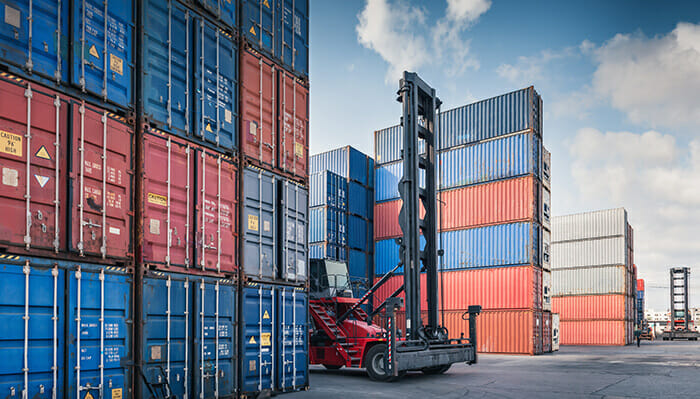The Central Link in Global LTL Problems: Shipping Containers
There is a global crisis happening right now in shipping in the LTL, less-than-truckload, freight sector. Lead times for products in every industry have increased, shipping prices have shot up and shipping containers are stranded in docks while products pile up in factories, awaiting carriers.
There are many reasons for the strain on the LTL freight market. COVID-19 restrictions, increasing demand from the pandemic, the Suez Canal blockage, and even the ice storm that ravaged Texas in February are all factors in the significant capacity issues and increased lead times affecting manufacturers and customers around the world.
Our world has become increasingly interconnected through trade, and no company is alone in these supply chain issues. Farmers in middle America make an effort to ship products such as soybeans to buyers in Asia. In China, furniture, clothing and other goods intended for the North American market accumulate on factory floors.
According to experts Peter S. Goodman, Alexandra Stevenson, Niraj Chokshi and Michael Corkery from the New York Times, “Around the planet, the pandemic has disrupted trade to an extraordinary degree, driving up the cost of shipping goods and adding a fresh challenge to the global economic recovery. The virus has thrown off the choreography of moving cargo from one continent to another. At the center of the storm is the shipping container, the workhorse of globalization.”
Shipping containers carry products across the oceans, around the globe, packing materials of all kinds. These containers are often made of metal and intended for re-use. Due to a surge in online shopping and international orders from COVID-19, the demand for shipping has “outstripped the availability of containers in Asia, yielding shortages there just as the boxes pile up at American ports,” Goodman said.
Shortages are happening as containers remain in North America, Africa, South America, Australia and beyond. In Africa and South America, the containers that once transported masks early on in the pandemic remain uncollected as shipping companies concentrate their freights on their most popular routes between Europe and North America.
There are also restrictions around COVID-19 that have affected shipping times. As a limited number of truck drivers are allowed in an area at once, dock times have been affected. A docking time that usually would take an hour and a half, in many cases, has increased by 2 to 3 hours. A product shipment across the U.S. that would typically take 6 to 8 days may now take up to 15. Shipping prices have shot up for companies and customers across the country and around the world.
We’ve seen many in our industry of chemical distribution affected by shipping issues, specifically in some of the products we distribute, including phenoxyethanol, EDTA, glycerine and erythritol. At Market Acceleration Group, we are ready and prepared to supply your needs in these areas. We have more than 42 years of experience in chemical distribution and have unrivaled supply chain expertise to address and mitigate any issues.
As the LTL freight market continues to experience significant capacity issues globally, the Market Acceleration Group remains ready to serve you. Don’t hesitate to reach out to our team at info@barentzma.com if you are experiencing supply chain shortages and or disruptions and need immediate assistance.
Learn more about the current global LTL issues through these resources:
